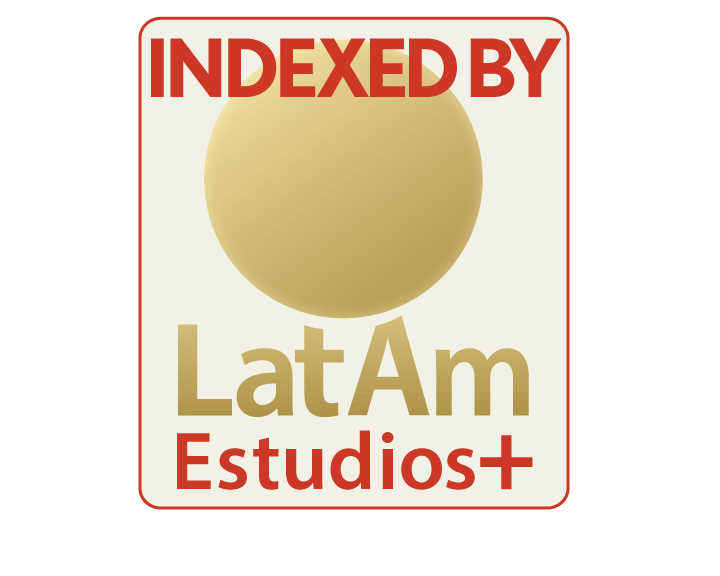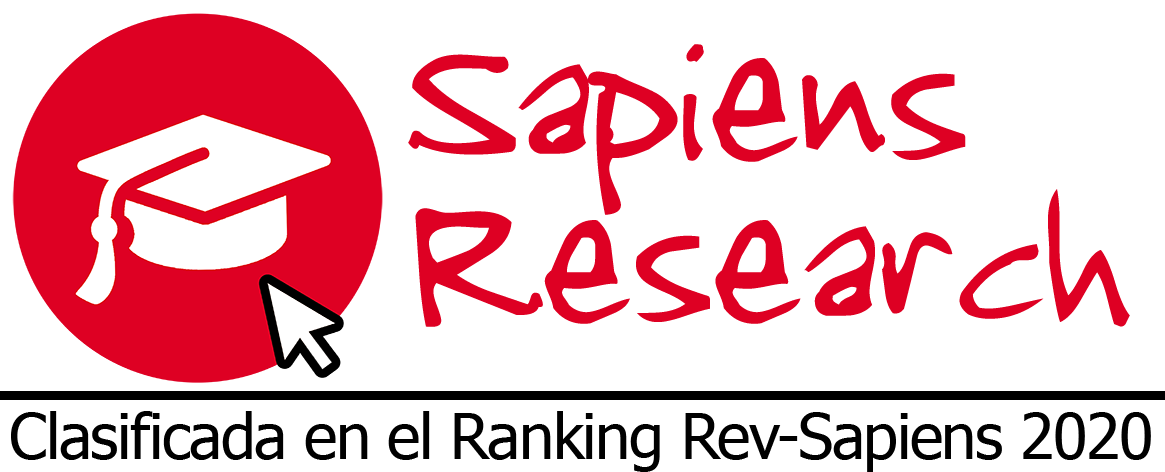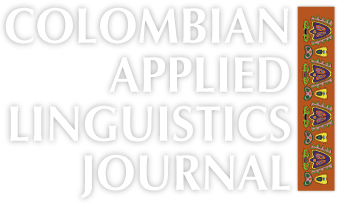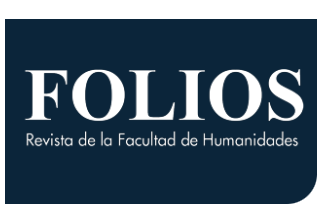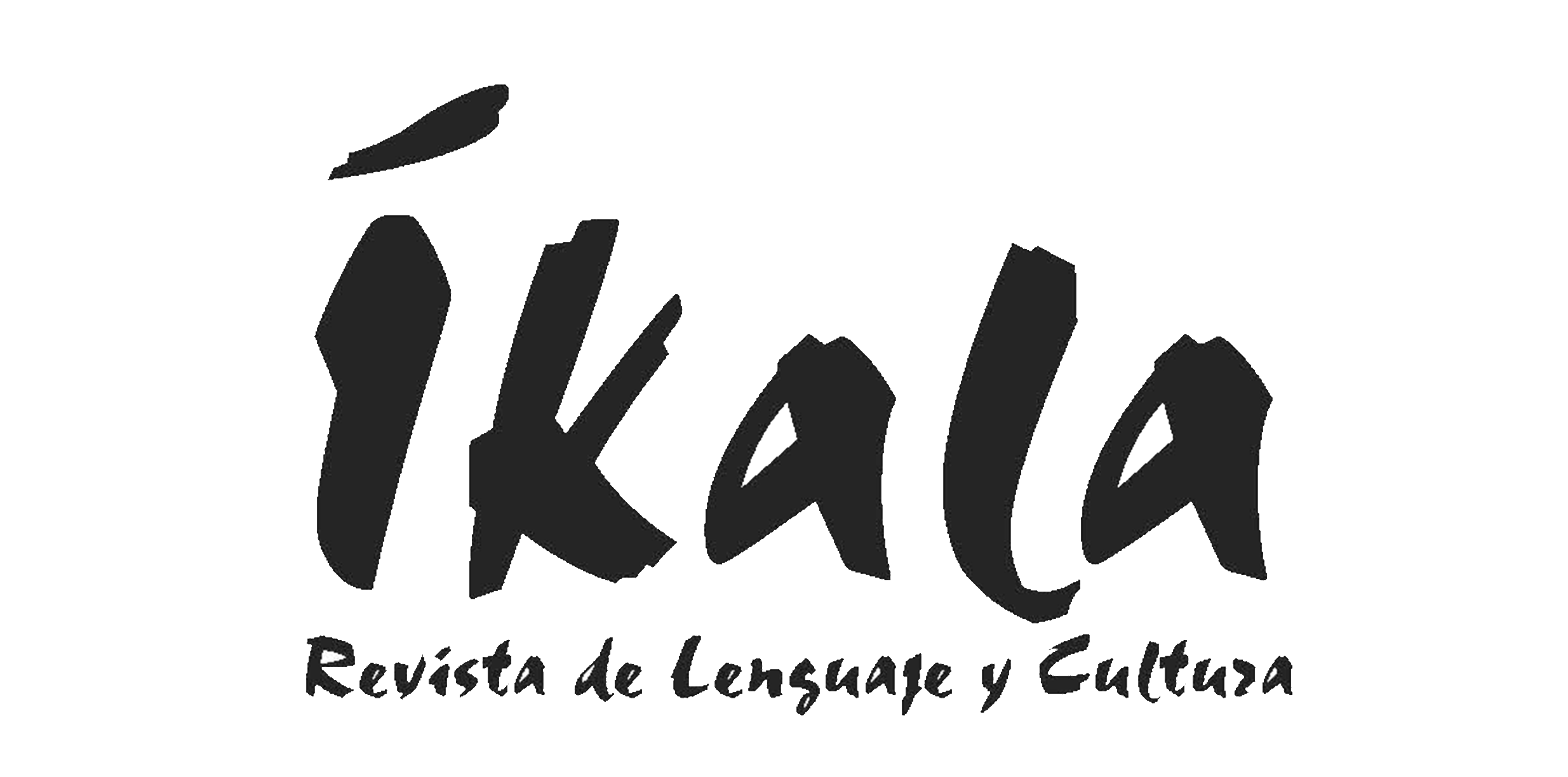About the Journal
Focus and Scope
This journal is led by the PROFILE research group at Departamento de Lenguas Extranjeras—Universidad Nacional de Colombia, Bogota campus. It is a publication mainly concerned with sharing the results of classroom research projects, reflections and innovations undertaken by teachers of English as a second or foreign language as well as by teacher educators and novice teacher-researchers. Starting from the assumption that our professional knowledge is enriched by different members of our academic community, the journal welcomes papers from different parts of the world, diverse educational levels and wide-ranging contexts. In sum, the Profile journal belongs to the areas of language education and applied linguistics; it deals with topics regarding the learning and teaching of English as a second or foreign language and teacher education in the same field. It is addressed to an international readership of pre- and in-service teachers.
We accept contributions from authors who already hold an undergraduate or graduate degree, which excludes minors and undergraduate university students.
Editorial Management
Manuscript submission and editorial management are carried out through the OJS system, which allows us to record each stage of the article submission, evaluation, and publication process, ensuring traceability and control. We maintain continuous supervision to prevent any manipulation of the editorial process, including the review of editorial procedures, staff training, and monitoring of any suspicious activity that may have an impact on editorial decisions.
Section Policies
Issues from Teacher Researchers: This section includes research reports (action research, case studies, narrative inquiry, etc.). Manuscripts should have an introduction, theoretical framework or literature review, method, context and participants, analysis, findings, conclusions.
Issues from Novice Teacher Researchers: This section contains manuscripts exclusively based on research conducted by new teachers as part of the monographs undertaken to get their BEd or BA degrees or for the theses to obtain a master’s degree. These manuscripts may include the tutor of the monograph or thesis as a co-author if his/her contribution in the composition of the manuscript has been significant (people who were not involved in the development of the thesis should not appear as authors of the manuscript). In this case, the main author is the one who obtained the BEd, BA, or MA degree.
Issues Based on Reflections and Innovations: This section gathers reflections about a specific topic with analytical, interpretative or critical perspectives, which are supported by different sources. Innovations include the justification, description, explanation and samples of pedagogical interventions in specific teaching fields.
This section also includes literature reviews, which should be based on a robust sample—typically around 30 works or more—to ensure comprehensiveness.
Peer Review Process
Each new submission is initially reviewed by the Editor to determine the suitability of a manuscript and to identify whether all the requirements have been met (see Author Guidelines). At this point the manuscript is also screened with a similarity-detection software to identify the percentage of similarity with other sources.
The approved manuscripts go through a double blind peer review process that takes four to five months, provided that there are no unexpected delays. Reviewers are selected based on their expertise in the manuscript’s topic, their publication output, their research experience, and their availability to complete the review within the established deadline. Authors’ recommendations are considered as long as no conflicts of interest are identified and the proposed reviewer meets the required criteria in terms of knowledge and experience.
Initially, two external reviewers will be assigned to each manuscript. Reviewers’ names will not be made available to authors under any circumstances. Similarly, the authors' identities are concealed from reviewers during the evaluation process. Authors should wait approximately four to five months until notification of a decision by the editor. If an article is accepted after having been read by at least two external reviewers, authors should be ready to revise it if necessary and to meet deadlines established by the editor to complete the editing processes. The Profile editor reserves the right to make editorial changes in the manuscripts recommended for publication for the purpose of clarity, concision, or style.
Important: When authors do not comply with the established deadlines or fail to respond to the Editor’s requests, their manuscript will be rejected. If they wish to continue with the review process, they must initiate a new submission. Manuscripts from authors who withdraw from the editorial process without justification (at any stage) will not be considered for evaluation in future issues.
Regarding review timelines, when peer reviewers request a revision and resubmission, the revised manuscript must be submitted within three weeks of receiving the reviewers’ feedback. For papers that have been recommended by peer reviewers, authors are allowed one week to complete the adjustments requested by the Editorial Committee.
Reviewers will have four weeks to prepare their feedback and they can give one of three possible recommendations after reviewing a manuscript: (a) recommended for publication, (b) revise and resubmit, or (c) rejected. If the concepts from the two reviewers are at odds, the following scenarios may arise:
Recommended for publication + Revise and resubmit = The manuscript will be sent to the author for revision and resubmission.
Rejected + Revise and resubmit = The manuscript will be rejected.
Recommended for publication + Rejected = The article will be sent to a third reviewer. Only the two concepts that are similar at the end of the review will be taken into account to reach a final decision.
If major changes are required by the evaluators or the editor, the article will be returned to you for amending, indicating that revision and resubmission is required. The improved version should be submitted within three weeks. After this period, the article will be regarded as a new submission.
The revised version of the manuscript should be sent to the editor together with a cover letter. It should include the authors’ explanations of how they addressed (or did not address) the reviewers’ comments. The resubmission will then be submitted again for evaluation. Once the manuscript has been recommended for publication by both reviewers, it will be reviewed by the Editorial Commitee to reach a final decision.
The Editorial Committee will take into account the reviewers' recommendations and will decide whether the article can be published. The date of publication will depend upon the amount of time taken for revision and resubmission.
Once the article is accepted, the edited version will be sent to the authors for approval. Upon publication, authors will receive a PDF copy of their articles. Profile does not provide printed versions of the article or of the complete issue to authors. If authors are interested in acquiring a printed version of the journal, they should contact the editor.
Publication Frequency
Profile journal is a semiannual publication and a new issue is published each January and July.
We accept submissions all year round, and manuscripts are reviewed in order of arrival. Date of publication of a manuscript, if accepted, depends on the duration of the peer review process which lasts, at least, four months. If interested, please complete the submission process via our platform.
Papers submitted to Profile journal cannot exceed 8,000 words, including the abstract, keywords, references, appendixes, and footnotes. The title of the manuscript should have a maximum of 13 words.
For further information please check the author's guidelines: https://revistas.unal.edu.co/index.php/profile/about/submissions#authorGuidelines
Should you have further questions, please contact us at: rprofile_fchbog@unal.edu.co
Open Access Policy
This journal provides immediate open access to its content on the principle that making research freely available to the public supports a greater global exchange of knowledge.
Digital Preservation Policy
The Profile journal is hosted on the platform "Portal de Revistas Universidad Nacional de Colombia," one of the information systems established as part of the institutional policy for the administration, preservation, and dissemination of the editorial output of the Universidad Nacional de Colombia, specifically the one related with the periodicals published by the University. Thus, one of the functions of the "Portal de Revistas Universidad Nacional de Colombia" is the preservation of the contents of the scientific-technical journals edited by Universidad Nacional de Colombia that meet the editorial quality criteria established by the University and that correspond to international accepted standards.
In addition, through the OJS (Open Journal Systems) platform, the Profile journal manages the activation of plug-ins that allow harvesting and depositing metadata and published content for their dissemination and preservation in different databases and indexing and archival systems.
Publication Ethics and Publication Malpractice Statement
Profile: Issues in Teachers' Professional Development is committed to following the international standards for scientific publications, guaranteeing an ethical and fair use of the content submitted to and published in the journal. To this end, the following guiding aspects, based on the recommendations by the Committee on Publication Ethics (COPE, https://publicationethics.org/), have been identified to facilitate and clarify the work of the editor, the authors, and the reviewers.
Editor
The Editor is responsible for the overall quality of the journal (content, editorial processes, design and publication) and should ensure that the articles published are relevant to the academic community and that the journal in general complies with accepted publication guidelines for scientific journals.
The Editor, with the assistance of the Editorial Committee, must follow practices of “fair play” in the sense that manuscripts are evaluated for their intellectual content without regard to the race, gender, sexual orientation, religious belief, ethnic origin, citizenship, institutional affiliation, or political philosophy of the authors. Furthermore, the Editor must ensure the journal’s editorial independence to guarantee that decisions regarding manuscripts are based solely on their scientific merit. Editorial decisions are not influenced by commercial or personal factors.
The Editor and the members of the editorial committee must declare any conflict of interest that could affect their judgment during the consideration of a manuscript. If necessary, they should seek the assistance of another editor (external or independent) for the assessment of the manuscript.
The Editor should maintain constant and prompt communication with authors and reviewers along the process of evaluation to keep them informed about the state of any given manuscript.
The Editor assigns reviewers based on their expertise on the topic of a given manuscript. Initially, each manuscript is revised by two reviewers. However, if the concepts from the two reviewers are at variance, the Editor should assign a third reviewer to help reach a decision. The Editor takes into account the reviewers’ suggestions but the final decision as to accepting or rejecting a paper lies with the Editor.
The journal specializes in the teaching of English as a second or foreign language. However, it recognizes the importance of the cultures with which English comes into contact. Therefore, the Editor, in collaboration with the Editorial Committee, will require community approval and conduct case-by-case evaluations to ensure that research involving Indigenous communities respects their rights and traditional/ancestral knowledge.
The Editor must ensure that the information gathered during the evaluation of a manuscript (evaluation forms, reviewers’ comments) is kept confidential and disclosed only to those involved in the process.
In collaboration with the editorial staff and/or the publisher (Universidad Nacional de Colombia), the Editor must decide on how to proceed in cases of a legal nature (libel, copyright infringement, plagiarism) or in response to allegations of scientific misconduct (e.g., falsification and fabrication of data). These decisions may also be based on the guidelines of international organizations such as COPE. In the case of plagiarism, the Editor will proceed according to the journal’s guidelines and policies. Investigations may be referred to the relevant institutions, and the results will be published when necessary.
Author
Authors must send contributions that are original (not previously published), valid (containing data that can be replicated and processed according to given methods or processes), and relevant (information that advances the knowledge in the field). Falsification and manipulation of data are unethical and unacceptable practices. Manuscripts must also be written with clarity and authors are encouraged to proofread their manuscripts before submission.
Parallel submission (submission of a manuscript to more than one journal at a time), duplicate publication (the total or partial publication of a manuscript in another source without justification or authorization), fragmented publication (producing multiple manuscripts from the same study without justification), plagiarism, and self-plagiarism are unacceptable practices and may lead to the rejection of a manuscript during the initial review or the retraction of a published article. Depending on the case, the relevant institutions will be notified. Manuscripts by authors whose articles have been rejected because of these practices will not be considered for evaluation in future issues.
Authors must carefully read the “Guidelines for authors” and prepare their submissions accordingly. Any submission that fails to comply with the guidelines will not be sent to evaluation until the problems are addressed by the authors.
As expressed in the “Guidelines for authors”, authors must include in the list of references and properly acknowledge throughout the manuscript all the works that were directly consulted in the composition of the paper.
In accordance with the criteria recommended by the ICMJE, authorship of a manuscript can be granted only to the people who made significant contributions either during the development of the study (i.e., conception or design of the study; the acquisition, analysis, or interpretation of data) or in the composition or writing of the manuscript (drafts and revisions). Authors are also accountable for all aspects of the manuscript and the study reported there. Practices like including “guest” or “ghost”1 authors must be avoided. People who made contributions not as important as that of the author(s) can be treated as collaborators and their help may be acknowledged in a note at the end of the manuscript. These considerations also apply to interdisciplinary research or international collaborations, in which case a fair and transparent assessment is conducted to ensure clarity in the contributions. In the case of multiple authors, they all need to previously agree on the version of the manuscript that will be submitted (or re-submitted when reviewers ask for changes to be made). Authorship must never be granted to generative artificial intelligence tools.
As stated in the “Guidelines for authors”, the consent form used to ask for permission from participants to use data obtained from them must be provided by authors. In case the participants are underage the consent form must be signed by their parents or legal guardians. It is highly advisable that in the manuscript the identity of participants is always concealed, either by the use of pseudonyms or codes. Authors are also responsible for obtaining permission to replicate any copyrighted material used within the manuscript.
Authors must disclose any potential conflict of interest2 (financial, personal, academic, etc.) that may have influenced the development of the study or that may arise during the evaluation of their manuscript. The submission form includes a section for authors to provide this information, as well as the sources that funded their study.
Authors must update their situation regarding conflicts of interest, if there is any significant change during the review process. This update should be made as soon as possible and communicated to the Editor before the manuscript is published.
For the sake of transparency, authors must disclose the use of generative artificial intelligence (AI) tools to assist with processes such as minor editing of a text or creating figures. Authors must reveal the details of such use (e.g., the type of AI tool used and the purpose of using the tool). In any case, the use of these tools must not exceed 15% of the total manuscript. Additionally, authors are encouraged to retain evidence of the terms used in AI queries, as the Editorial Committee may request them to make informed decisions.
As stated by COPE, "Authors are fully responsible for the content of their manuscript, even those parts produced by an AI tool, and are thus liable for any breach of publication ethics." (https://publicationethics.org/cope-position-statements/ai-author). The use of AI tools for fundamental aspects of a paper (such as research design, substantial writing of a text, or the creation, alteration, or manipulation of data and results) is not allowed. Therefore, these tools cannot be listed as an author of a paper. The use of AI for the consolidation and analysis of research data is allowed as long as it is part of software traditionally used in the field for this purpose (e.g., NVivo, ATLAS.ti, MAXQDA, etc.).
Authors should maintain a respectful and professional communication with the Editor. They are entitled to appeal a review in case they consider it was poorly done or without enough arguments.
Authors are expected to comply with all deadlines set during the review, editing, and publication processes.
After publication, authors still hold copyright on their manuscript (the right to first publication being granted to Profile) and therefore it is their responsibility to notify the Editor if they find any error. They will work with the Editor on how to better deal with the error, whether through an erratum or, in an extreme case, by retracting the article.
If the work described in the manuscript involves animal subjects, psychological procedures, or any hazardous element (e.g., chemicals), the authors must provide the necessary information (e.g., ethical approval from an institutional review board or an equivalent body) to verify that they followed the international ethical standards for these cases.
Reviewer
Reviewers are selected based on their expertise in the manuscript’s topic, their publication output, their research experience, and their availability to complete the review within the established deadline. Authors’ recommendations are considered as long as no conflicts of interest are identified and the proposed reviewer meets the required criteria in terms of knowledge and experience.
Reviewers must respond promptly to the Editor’s evaluation requests, whether to accept them or decline them.
Reviewers must comply with the deadline established by the Editor to complete the review. The corresponding evaluation form must be adequately filled in and reviewers are also entitled to write comments to the authors directly on the manuscript. Reviewers must perform their evaluations in a respectful and objective manner, trying to give the necessary arguments to support their comments or suggestions.
As part of the evaluation process, reviewers maintain confidentiality and thus do not disclose any details of the manuscript or its content to third parties.
Reviewers must also disclose any potential conflict of interest as well as any other major problem that they may detect during evaluation (falsification of data, plagiarism, parallel submission, etc.). If a conflict is identified, the manuscript is reassigned to another reviewer to ensure the impartiality of the process.
Requests, complaints, and claims
We have established a documented procedure for handling ethical complaints and concerns. Any concern or complaint must be submitted to the journal’s Editor via email to rprofile_fchbog@unal.edu.co. The Editor will forward the communication to the Ethics Committee, which will review each case confidentially and take appropriate measures to solve any issue.
We review and update this Ethics Statement at least every two years to ensure that it reflects the best practices and the latest guidelines in the field of scientific publishing. The most recent review was conducted in April 2025.
We conduct regular internal audits to verify compliance with our editorial ethics policies and ensure that the highest standards are maintained in our publication process.
1“Guest authors” are those who are included because of their supposed prestige or enforced by an outside party (such as the institution where the authors work). “Ghost authors” are those who actually made a significant contribution but who, for some reason, are not listed as authors of the manuscript.
2An instance of conflict of interest is when the authors have some kind of relationship (relative, work) with a journal’s reviewer. The authors should inform the Editor of this situation when submitting the manuscript.
Estadísticas (Google Analytics - Users) (Visitas)
Sponsors and Sources of Support
Universidad Nacional de Colombia (sede Bogotá). Facultad de Ciencias Humanas. Departamento de Lenguas Extranjeras.
Reviewer Guidelines
Dear Reviewer,
You are encouraged to consult the journal Publication Ethics and Publication Malpractice Statement, section “Reviewer,” for a summary of the main duties expected of reviewers. The Statement can be found at: https://bit.ly/2RcpkVq
In general terms, you are asked to judge the paper in terms of its novelty, relevance, and adherence to accepted academic publication standards, based on a series of aspects and elements outlined in the evaluation form. We recommend you be as precise as possible when making your comments and suggestions. Apart from the feedback given in the evaluation form, and if you consider it necessary, you may also include comments on the margins of the manuscript itself.
Please bear in mind that if the paper presents many language mistakes which make reading difficult, you are not required to correct them. You just should indicate this flaw to the authors so that they submit the paper to proofreading. Papers that are finally recommended for publication are also checked by our copyeditor.
There are four options at the end of the evaluation form: you can (a) accept the article as it is or (b) with minor revisions. You can also (c) ask the author/s to revise and resubmit the paper based on suggestions you can write down in the form or directly as comments on the paper itself. In this case, once we receive a revised version of the manuscript from the authors, we will send the manuscript to you for a final decision, if you are willing to do an additional round of review. Finally, you can (d) recommend the rejection of the manuscript.
We usually give reviewers five weeks to submit their reviews, but this deadline is flexible.





















